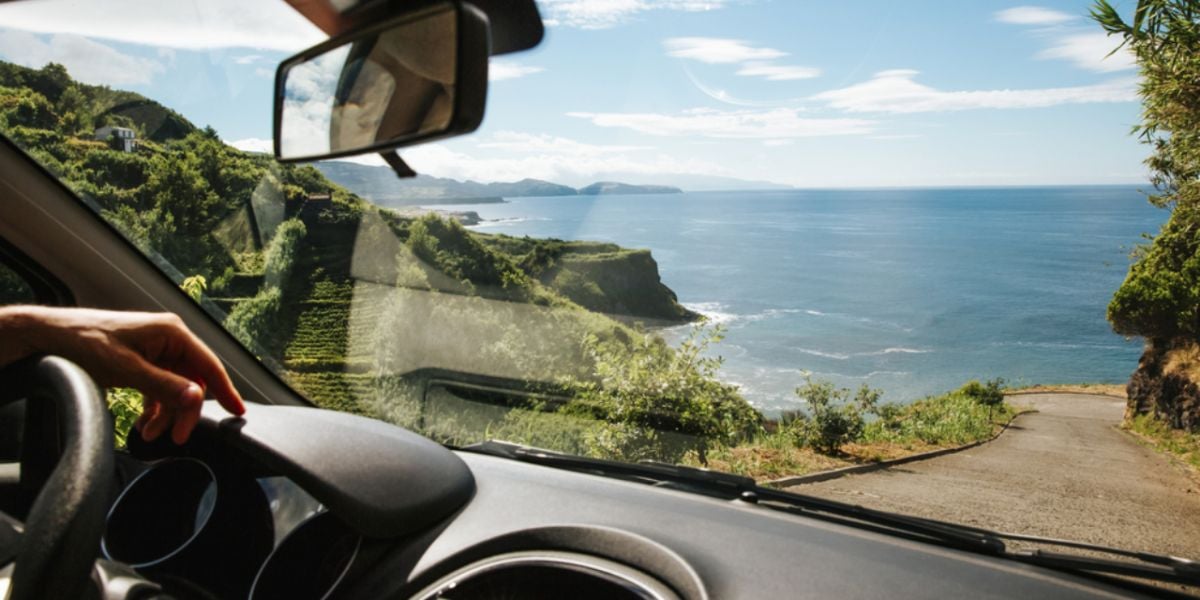
If you're relocating to Portugal and plan on driving, it is important to be aware of the administrative requirements for driving and obtaining a license. Portugal has invested massively in its road system over the past few decades, making the country a surprisingly good destination to drive.
Do you need to exchange your foreign license for a Portuguese one?
While before visitors from outside the EU needed to get an International Driver Permit (IDP) in order to legally drive in Portugal, that is no longer the case. Obviously, if you're just visiting for tourism and do not hail from an EU member state or an OECD/CPLP country, there is no long-term need to exchange your home license for a Portuguese one, meaning getting an IDP is still the way to go. The IDP is valid for 6 months.
However, if you are actually moving into the country, the process has been streamlined. Once again, if you are a citizen of an EU member state, Iceland, Liechtenstein, or Norway, or a citizen from an OECD or CPLP country, your license is fully accepted in Portugal for a period or 2 years, meaning you can just use it normally unless you are over 60 or your license was issued over 15 years ago. In those cases, or after 2 years since your residence permit was issued, you will need to exchange your license for a Portuguese one (no need to take a test, just make the request). If you live in Portugal and are able to use your home license, you just need to register your address for free with the Institute of Mobility and Transport (IMT) within 60 days of your arrival, producing your national driver's license (original and copy), your ID and a filled-out Modelo 13 IMT form. Also, keep in mind this exemption is only valid across Portuguese territory, meaning you may not use your home license to drive across the Schengen Area (you'll need to look it up on a country-by-country basis).
The same goes for countries that have a bilateral agreement with Portugal or nations that have adhered to the International Conventions on Road Traffic. After taking up residence in Portugal, citizens can drive with their home-issued licenses for a period of 2 years. If they're just visiting temporarily and do not have a residence permit, their licenses are only accepted for 185 days.
On the other hand, drivers coming from countries that aren't part of the International Conventions on Road Traffic (nor from the EU, OECD, or CPLP countries) cannot use their home licenses in Portugal. In that case, they are required to exchange their licenses for Portuguese ones as soon as they arrive. They will need to fill out an online form and wait for the IMT to call them up for an appointment to take their biometric data and register for a driving test (to be taken on a future date). Although they need to take said test, enrollment in a driving school (or driving classes) is not necessary.
Finally, whether new residents need to exchange their licenses as soon as they arrive in the country or only after 2 years, they are still legally required to present the following documents:
- ID;
- Valid foreign driving license;
- Residence permit;
- Portuguese Tax ID number (NIF);
- Electronic Medical Certificate (sent directly by the doctor to the IMT)
If you are getting a license for categories C1, C1E, C, CE, D1, D1E and DE, you will also need to show a psychological assessment certificate issued by a psychologist.
Citizens from nations that aren't part of the International Conventions on Road Traffic will also need to produce the following:
Statement by the consular authority certifying the authenticity of the driving license;
Translation of the driving license, authenticated by the Portuguese or other EU Member State consular service in the country of issuance (only when the license is not issued in Portuguese, French, English or Spanish).
Lastly, exchanging a foreign driving license for a Portuguese one costs €30.00.
Driving rules and regulations in Portugal
Before you get behind the wheel in Portugal, it is essential to get familiar with all the rules and regulations of driving in the country. Naturally, we won't be able to list all driving rules and regulations here, but here is a quick introduction:
- In Portugal, people drive on the right side of the road.
- Speed limits, unless marked otherwise, are 50 kph in urban areas, 90 kph on rural roads, and 120 kph on motorways.
- The blood alcohol limit is 0.5 g/liter.
- Phones are not to be used while driving unless they are hands-free. Fees for using your phone while driving can go from 120€ to 600€.
- Seatbelts are mandatory for every passenger.
- While driving, always have your license, proof of insurance and vehicle registration (ID is also a plus in case of emergency).
- Many motorways have tolls, which can be paid with cash, card or via an electronic sensor (Via Verde) that automatically bills you. If you enroll in Via Verde, you may then consult all your pending fees online or receive a letter at your mailbox address every time you need to pay toll fees.
- Some secondary highways have shadow tolls (SCUT's). Every time you pass through a shadow toll, you have 7 days to pay the fee online at the CTT website or through any establishment that supports “payshop” (usually kiosks and stationary shops – “Papelarias”). If you miss the timeline, you'll have to pay a fine that will later on be sent by mail to your address.
Fines and points system in Portugal
Once you get your Portuguese driver's license, the system will automatically give you 12 points. Afterward, every time you get a fine for unruly actions/behaviors, points will be deducted from your tally:
- Parking over a zebra: 2 points;
- Speeding (up to 20 km/h) or drinking and driving (between 0.5 and 0.8 gr/L): 3 points;
- Overtaking next to a zebra: 3 points;
- Missing a STOP sign: 4 points;
- Speeding (up to 40 km/h) or drinking and driving (between 0.8 and 1.2 gr/L): 5 points;
- Drinking and driving (over 1.2 gr/L): 6 points.
Once you're down to 4 points, you will be summoned to attend a mandatory road safety training. In case you only have 2 points left, you will be required to complete a new code test. Finally, if all your points get taken away, your driver's license will be revoked, and you'll have to wait 2 years until you're allowed to enroll in a driving school and start the whole process from scratch.
On the contrary, you get an extra 3 points for each 3-year period without any fines or charges until you reach the cap of 15 points.
We do our best to provide accurate and up to date information. However, if you have noticed any inaccuracies in this article, please let us know in the comments section below.








